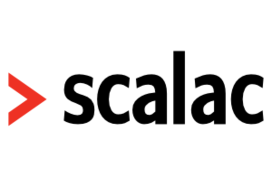5 things you should do to join Scalac

The Scalac Factor
Every company has its own culture. So do we. We really love to work together as a team. Scalac started as a remote-friendly company without managers, and we continue with those values in mind. Remote work is only growing inside the company, and even though the flat structure isn’t that flat anymore you can still call our CEO by name, and we’ve got more roles rather than complicated structures. Startup atmosphere – as they call it – but we prefer to call it the Scalac’s atmosphere because we believe that the fact that we work hard, have fun, and do the right thing is something unique and great about our company.
Growing company
Why things changed at all? Because now we have exactly 124 people in our team while only 3 years ago there were only 70. So obviously, we had to reorganize how things are done.
We have a core team, whose members are responsible for different business areas. Of course, at the top of our team, we have a CEO, but we also have technical leaders for different teams: Development – Backend (mostly Scala), Frontend, QA, UX/UI designers, Business Development, Project Management, Human Resources, Finance, and Marketing.
As I’ve mentioned before, we are far away from a corporate structure, which we want to avoid as long as possible. This is crucial, but the most valuable thing about Scalac is the people – working as one big team of functional, passionate people to keep our quality bar very high.
5 things to join Scalac
Are you wondering how it is to be a Scalacer or thought about applying to Scalac? Here’s a quick guide to prepare you for joining our crew and to briefly show you what the core values we cultivate are.
1. Be sure that your code is functional
If so – that’s the first strong sign that we want you in our team!
Be ready to learn
If your code is not functional… yet – this section could be for you. Our candidates are often strong and experienced Java, PHP, Python, etc. developers, willing to switch to Scala. Their code in the technical task is well-structured, has all the goodies of OOP. However, the code isn’t very functional or reactive. In this scenario, we could call it “Java/PHP/Python in Scala”. Too many variables, as well as a lack of the proper usage of techniques available in Scala, such as Tail Recursion.
Don’t get us wrong. This doesn’t mean that we will reject great guys like this at the beginning. We encourage them to work hard and change the way they code by providing solid feedback and learning sources.
How to learn?
We are always happy to send them Scala Tips, which were prepared by our developers, or a list of good sources to study to help start properly with Scala. We also try to share our developers’ thoughts and opinions about a candidate’s code, so if you want to consult them during the recruitment process about anything – don’t hesitate to let us know – we will be happy to help.
A good and proven method that works best for learning functional code is to read the famous red book “Functional Programming in Scala” or complete the Martin Odersky Course. They have several exercises that force you and your brain to switch to a functional way. It might be a bit painful at first, but when you manage to break through the wall of pain, you will be enlightened and delighted. And in our experience, you probably won’t want to go back and return to nonfunctional code. But let’s see – we await your opinion!
2. Be sure that you are close to our values
Scalac at its core is a flat organization. We love to cooperate. We have three strong values at the center of our culture:
- Work hard
- Have fun
- Do the right thing
Work hard
We work hard on our projects and put our whole hearts into making them real and work properly.
Have fun
But after all this hard work, we like to spend some time together during our online informal meetings, talking about random stuff. Or during our integration trips when we can be together, doing new activities like off-roading, paintball, kitesurfing, and do even more talking, dancing, and signing up to the morning hours ;)
Do the right thing
Doing the right thing is just as important as the previous two. We want to believe that everything we do – we do with good intentions and for a good purpose. Often we get involved in charity campaigns to help those in need. We choose good and responsible sources for our gifts or swag if you prefer. For our employees, the most important areas for ‘doing the right thing’ are the environment, children, and animals – so we try to help them whenever we can.
If you’re one of us – we trust you
It may sound like a cliche but when you think about it, you realize that the answer to most of your questions is you. You know what is “the right thing”. So just do it. If it doesn’t work – you can make mistakes, we all make them. That’s the way we learn. The main reason is that we strongly believe in another of our values: “People at Scalac are very smart and responsible”. When you are smart and responsible, you are able to make decisions about your own tasks, take ownership, and face up to the consequences. You do it because you know it’s needed. This goes back to our core value “Do the right thing”.
Everything around coding has to be done by someone and in most cases, you are the one who decides what to focus on.
3. Be ready to be an integral part of Scalac
The Handbook
We use the Scalac Handbook to show new employees how we work, who is who, how all the processes work. We want to be transparent and open to discussion at all times. In our Handbook, we have an unwritten chapter, where everyone can add something his or herself to improve our way of working.
Scalac Times and Meetings
In our internal communications, we try to be as transparent as possible. We have our Scalac Times newspaper, which comes out cyclically every month and contains the most important information about what has been happening in our projects, teams, events, etc during the last month. In this newspaper, every team has its own space and can give any information it wants. We have also set up cyclical meetings between the whole team and our CEO, at which we can ask about anything connected to our company.
Knowledge-sharing
A really important part of the way we function is knowledge sharing. We love to share our knowledge everywhere, all around the world in fact. We want to be an integral part of the Scala community and develop it together at different conferences, in our branches, or via taking part in open source contributions. Scalac organizes its own events such as Functional Tricity meetups, Scala Wave conferences, Scalac Summer Camps, and Pizza meetings, where we can also share our expert knowledge with each other.
4. Be open to working remotely
Scalac is a remote-friendly company. This means that apart from the values we have already outlined, remote work is another core aspect of our company. How do we work remotely?
How to work remotely
Our employees have already written great articles on this subject, you can find them here:
- Working remotely – Simple guide for people who want to start but are afraid by Michał Szulczewski
- A few business lessons on remote work that crisis can teach us – by our CEO Łukasz Kuczera
- How to manage remote employees by Monika Hinc, our Head of HR
- How to work from home like a boss also by Monika Hinc, our Head of HR
In these texts, our Scalacers list several challenges of remote working and share tips on how to handle them from different perspectives. Please read them and think for a moment if it’s really for you. Maybe you would prefer to mix remote working with working from the office in Gdańsk or in coworking spaces. This type of work is challenging and requires a lot of self-organization and perseverance. But if it suits you – it can be a great, valuable experience!
Despite the remote character of our work, as we mentioned before, we love to spend time together. We pay a lot of attention to our relationships and nurturing them. After work, we can talk on our #cafe or #wine channels or meet during company retreats.
Watch this video to have a little sneak peek on how it looks like.
These days, after the coronavirus lockdown, the world and ways of working are changing and market research shows that remote work has become more popular than even just one year ago. And we’re quite lucky to have 6 years of experience in this matter.
According to the ‘Remote Managers 2020 Report’, 87% of remote managers believe that remote work really is the future.
5. Be ready to choose your own direction
It’s important to know where you are heading. Of course, your plans may change a year from now but we like to work with people who know what they want to invest their time in. We know that it’s hard to be good in every field.
There are cases when somebody is a full-stack developer but being good at both ends of the software requires a tremendous amount of hard work. We really appreciate it and support it as much as we can.
Scala hAkkers
We are experts in the field of Scala functional programming and we want to work with the best Scala hAkkers in the world.
It’s important to know where you want to be in the future and we as a company can help you develop your career path in various directions:
- Consultant – focused on cooperation between technology and business, explaining technical issues to the clients, proposing solutions, and ways to implement projects.
- Team player or mentor supporter – focused on teamwork, always willing to help, share your knowledge, caring for the development of both yourself and the team.
- Typical hacker – focused on the hard, complicated programming tasks to bring projects to an end with good quality.
- Any other path which you have a vision for, or maybe you have an idea you want to develop, something you’re able to show us and convince us it’s a great idea. If so, yes! Let’s do it together!
We like to work with people who are well aware of their choices and are fully committed to achieving their goals. We help them to do this by sponsoring their trips to the best conferences around the world, providing books, holding both internal and external training.
Join Scalac
On our Careers page you might like to take a look at us, our teams, how we work, what is important to us, which positions are open, and a lot more information which we hope will convince you to join us.
As I mentioned before we do not have only Scala team, but it is our core – especially in the context of functional programming, so it was only to highlight where we’re coming from. We’re constantly changing and building new teams.
So, are you ready to join Scalac? Do you agree with our core values? Is there anything you would do differently? If so, we’re happy and open to talk to you about it!
